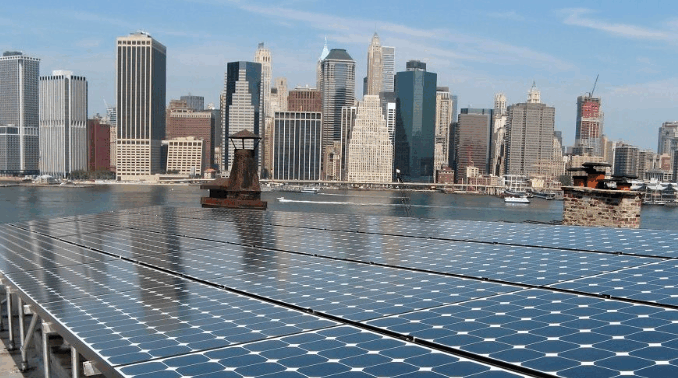
By Flugue Joseph Jr
The future of New York State’s energy policy was up for debate at a September 18 NYS Energy Research and Development Authority (NYSERDA) hearing at Bronx Community College about the draft of the state’s energy plan.
The Energy Planning Board is directing the development of the plan as a step toward implementing New York’s Climate Leadership and Community Protection Act. (CLCPA) The plan is set to go into effect at the beginning of 2026.
The CLCPA is a law that sets ambitious climate goals, including achieving 100 percent zero electricity emissions by 2040 and reducing overall emissions at least 85 percent below levels in 1990.
The hearing attracted people with strong opinions about the plan. Some of those criticizing the plan said harmful emissions from natural gas contributes to high asthma rates, while many who spoke in favor of the plan cited the lack of feasibility of such a switch to renewable resources.
Patience O’Tune, a Bronx resident of over 20 years, opposed continued funding of nonrenewable infrastructure. “The Bronx has the highest rate for asthma, so these increased gas markers will affect people’s health as well as their bills,” O’Tune said. “This is the time to put the Bronx residents first in consideration of any new energy policy.”
The use of nuclear power was also a topic of discussion, with many concerned with the state’s attempt to backtrack its original decision to move away from nuclear power with the closure of the Indian Point nuclear reactor in April of 2021.
Susan Van Dolson, an activist for Westchester For Change, criticized the plan. “(Kathy Hochul) says New York will not meet the climate goals mandated by law (CLCPA), she’s embracing nuclear power and supporting fracking rejected by the state… Renewable energy is cheaper and creates more jobs.”
Carl Johnson, a business agent for Plumbers Local Union 1, spoke approvingly of the energy plan. “We need natural gas to keep the prices of everything down…We need nuclear. We also need geothermal energy, it would be nice, but the reality is you would have to make the electrical service line that’s probably 10 times the size of what it is, and it would take the electricians almost 100 years to do that.” Johnson added, “I understand that everybody wants it to be possible for them to plug in their electric car, and they want to get rid of their oil and gas… but the reality is it’s not going to be electric for quite a while., I’m sorry, it’s time to settle.”
Daniel Macintosh, also a plumber’s union member, spoke in support of the energy plan for the time being. “Let’s back up with gas, it does not seem possible at this time to put up the switch. So, I’m very much in favor of all of the above approaches.”
Daniel Chingyu Chu, Senior Energy Planner for the New York City Environmental Justice Alliance and a doctoral candidate at the City University of New York, spoke with dismay about the energy plan, citing concerns that the energy plan goes against the CLCPA. “Nuclear power is the most expensive form of energy on the grid, costing the state double to triple the amount to fund compared to renewables.”
The Energy Planning Board will continue to hold hearings with the public before its final revised version is released at the beginning of 2026. The next hearing will be Monday September 29th at Stony Brook University.
